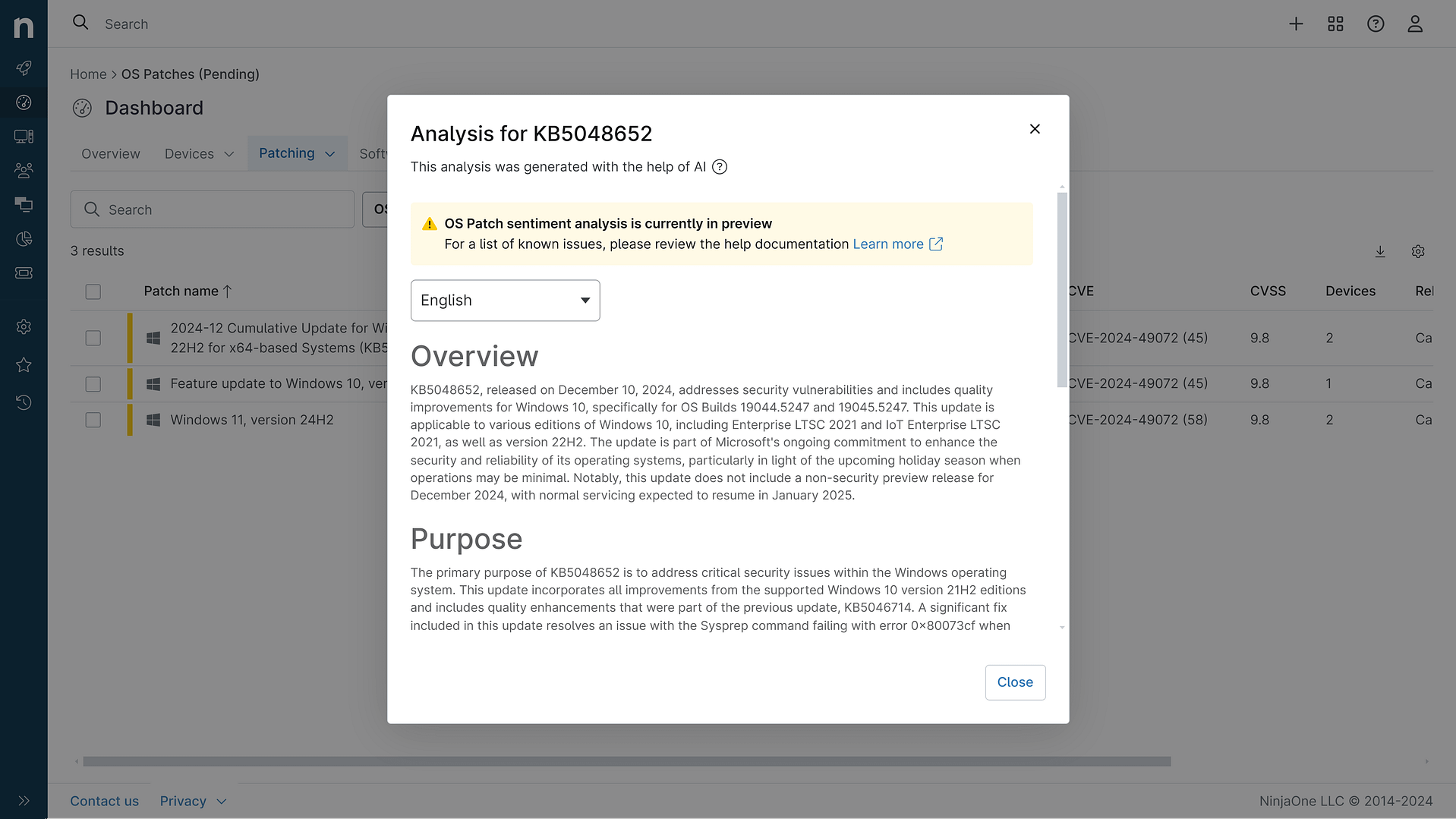KB5033899: Overview with user sentiment and feedback
Last Updated December 22, 2024
Probability of successful installation and continued operation of the machine
Overview
The KB5033899 update, released on February 13, 2024, is a Security and Quality Rollup for the .NET Framework 3.5.1, specifically targeting Windows Embedded 7 Standard and Windows Server 2008 R2 SP1. This update is part of Microsoft's ongoing commitment to provide security enhancements and reliability improvements for legacy systems that have transitioned to Extended Security Update (ESU) support. The update was initially released on January 9, 2024, and the February release does not introduce any new changes, meaning users who have already installed the January update do not need to take any further action.
This update is crucial for maintaining the security posture of systems still operating on these older platforms, as they no longer receive mainstream support. The update addresses several vulnerabilities, including security feature bypasses and remote code execution vulnerabilities, which are critical for protecting against potential exploits. Users are encouraged to apply this update as part of their regular maintenance routines to ensure their systems remain secure and reliable.
General Purpose
The primary purpose of KB5033899 is to enhance the security and reliability of the .NET Framework 3.5.1 on Windows Embedded 7 Standard and Windows Server 2008 R2 SP1. This update addresses multiple vulnerabilities, including a security feature bypass vulnerability (CVE-2024-0056), an elevation of privilege vulnerability (CVE-2024-0057), and a denial of service vulnerability (CVE-2024-21312). Additionally, it resolves a remote code execution vulnerability associated with the HTTP .NET remoting server channel chain. While the update does not introduce new quality and reliability improvements, it is essential for users to install it to mitigate risks associated with these vulnerabilities and to maintain the integrity of their systems.
General Sentiment
The general sentiment surrounding KB5033899 appears to be cautiously positive. Users recognize the importance of applying security updates, especially for systems that are no longer in mainstream support. The lack of reported issues associated with this update contributes to a favorable view, as users appreciate the focus on security enhancements. However, there is an underlying concern regarding the continued reliance on outdated operating systems, which may pose risks in the long term. Overall, the sentiment leans towards support for the update, with users acknowledging its necessity for maintaining security in legacy systems.
Known Issues
There are currently no known issues associated with this update.
Disclaimer: We take measures to ensure that AI-generated content is of the highest possible quality, but we cannot guarantee its accuracy and recommend that users do their own independent research. Generated on 2024-12-22 06:57 AM
